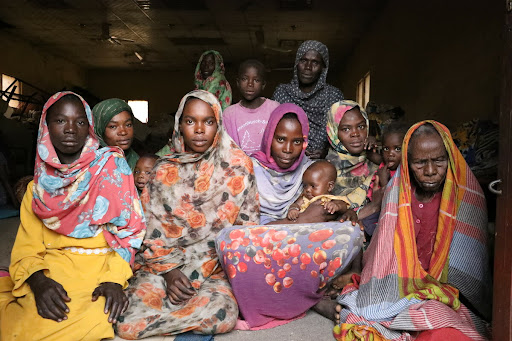Africa Leads In The List Of World’s Most Overlooked Crises
Seven African countries are leading in a recently released list by the Norwegian Refugee Council of the world’s ten most neglected conflicts.

Seven countries in Africa have topped the list of the world’s 10 most forgotten crises, the Norwegian Refugee Council (NRC) said in its 2022 report on countries enduring hardships as a result of displacement.
Every year, the aid group provides a list of the most neglected countries in crises across the globe. The purpose is to shine a light on the plight of people whose suffering rarely makes international headlines, who receive little or no assistance, and who seldom become the centre of attention for international diplomacy efforts.
Out of the 10 countries on the list for the year 2022, seven are in Africa; Burkina Faso, Burundi, DR Congo, Ethiopia, Mali, Sudan, and Cameroon while the other three non-African nations are Colombia, Venezuela, and El Savador.
According to Organisation for Economic Cooperation and Development (OECD), the total aid to Africa was USD 34 billion in 2022 (overseas including development assistance and humanitarian aid), representing a drop of 7.4 per cent compared to 2021.
It added that in 2022, the world’s biggest significant donors spent more money on domestic refugee help than on international humanitarian relief.
According to the NRC’s report, data from Meltwater said 375,000 articles about the 10 most ignored displacement crises in the world were published in the English-language media last year. In contrast, during the same timeframe, 1.98 million English-language articles about the refugee crisis in Ukraine were written.
In Burkina Faso, humanitarian needs soared in 2022; by December, there were 4.9 million individuals in need of aid, a 40 per cent rise from January. Additionally, 830,000 people were deprived of access to water due to attacks on water points by armed non-state groups. Over 6,200 schools were shut down because of insecurity, nearly doubling the previous record and disrupting the education of over a million kids.
As the conflict in the country intensifies, aid workers are concerned that the humanitarian crisis in the country may also worsen, as Burkina Faso has appeared on this list consistently for the past four years. In 2022 alone, two military coups were carried out. And more than 40 per cent of the country has been taken over by armed groups in the North. Ansarul Islam, the Group to Support Islam and Muslims, and Islamic State in the Greater Sahara, are some of the terror groups operating there.
Concurrent crises in the Democratic Republic of the Congo (DR Congo) worsened the humanitarian situation and made life harder for the nation’s 5.7 million internally displaced people. However, this has not yet resulted in a better everyday reality for the 27 million individuals in need of assistance around the nation.
Sudan, Blue Nile State, North, South, and West Kordofan states, as well as the Darfur region, all saw an increase in fighting. The targets of the horrific violence were civilians, including internally displaced people. Over 310,000 people were displaced as a result of the burning of hundreds of villages, which resulted in the deaths of 991 people.
Similarly, over 300,000 Burundian refugees remained in Burundi’s neighboring countries of Tanzania, Rwanda, the Democratic Republic of the Congo, and Uganda over ten years after their uprooting. Upto 200,000 Burundians in all have been repatriated since 2017. Tanzania, the nation hosting the majority of Burundian refugees, was in a difficult situation.
For Mali, humanitarian space was further restricted and people’s ability to access essential services, including health and education, was obstructed by insecurity. In remote areas, the non-functioning of civil registry services left communities increasingly vulnerable. Children have been the most affected with an estimated 150,000 children in Mali lacking birth certificates and more than half a million out of school last year.
In a similar vein, at the beginning of 2022, 3.9 million people in Cameroon needed aid. By the end of the year, that figure had increased to 4.7 million as the nation continued to receive little attention from the international community. Only 55 per cent of the humanitarian response was funded by international donors as money was still scarce.
The greatest drought in decades hit Ethiopia last year, which was made worse by climate change. The effects of catastrophic climate events persisted in 2023, with flooding already having a significant impact on tens of thousands of people, uprooting families and destroying animals in regions that are hardly accessible to humanitarian relief. In Ethiopia, there were more than 20 million individuals in need of humanitarian aid in 2022.
Jan Egeland, NRC’s Secretary-General said, “The world has failed to support the most vulnerable, but this can be reversed. The lives of millions of people suffering in silence can improve if funding and resources are allocated based on need, not geopolitical interest, and media headlines of the day.
“Last year the gap between what was needed and what was delivered in humanitarian assistance was 22 billion USD. This is a huge sum of money, but no more than Europeans spend on ice cream a year. We need donors to increase support and new donor countries to step up to share responsibility.”
Support Our Journalism
There are millions of ordinary people affected by conflict in Africa whose stories are missing in the mainstream media. HumAngle is determined to tell those challenging and under-reported stories, hoping that the people impacted by these conflicts will find the safety and security they deserve.
To ensure that we continue to provide public service coverage, we have a small favour to ask you. We want you to be part of our journalistic endeavour by contributing a token to us.
Your donation will further promote a robust, free, and independent media.
Donate HereStay Closer To The Stories That Matter




